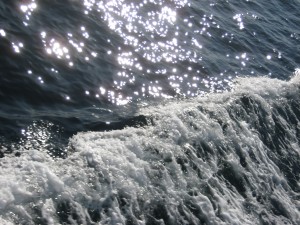 The UN declared March 22, World Water Day starting in 1993. The WHO has made 2005-2015 the International Decade for Action – Celebrating Water for Life. Between the two organizations, there is plenty of reading and statistics available to parents on water. It is important to educate ourselves so we can make decisions that positively effect water for our lifetime, our children’s and their children’s lives. It is also important to understand the facts so we can raise our children to be good stewards of the earth in their time.
The UN declared March 22, World Water Day starting in 1993. The WHO has made 2005-2015 the International Decade for Action – Celebrating Water for Life. Between the two organizations, there is plenty of reading and statistics available to parents on water. It is important to educate ourselves so we can make decisions that positively effect water for our lifetime, our children’s and their children’s lives. It is also important to understand the facts so we can raise our children to be good stewards of the earth in their time.
For parents:
- You can find the WHO Booklet on the International Decade for Action here http://www.irc.nl/page/16740
- You can read through the UN World Water Day information here http://www.worldwaterday.org/
For the children, it may help to ‘boil’ the information down into ‘easy to swallow’ tidbits and action items. I have done so below.
Basic tidbits to relate the importance of a large and clean water supply to your Preschooler:
- Our body is mostly made of water (70% according to the Nature Conservancy.) We need water for energy, muscles, immune system, and our brain, even to get old or bad stuff out of bodies.
- Dirty water can contain garbage or illness. It is bad for us to drink. It is also bad for the fish, the animals and the plants that can also get sick from dirty water. We need healthy plants, fish and animals as these are part of our ecosystem (more simply put we need to eat to survive.)
3. We need clean water to play! A lot of us visit the coastal areas every year (according to the EPA, 1/3 of all Americans). Dirty water causes the beaches to close.
Action items for Preschoolers:
- Understand some of the basic facts (listed above on why water is important.)
- Understand how much water we use and with little changes how much we can save.
- Next time you fill a bath, explain that is how much water is fresh clean water is wasted in a week if the sink is left on when they are brushing their teeth. For parents – the average faucet gives water at 2 gallons per minute. Brushing teeth takes about 90 seconds, 2 times per day.
- Have them remind you to take the car to the car wash! According to the Nature Conservancy a car wash uses 32 gallons of water versus 500 gallons on average to wash the car at home.
- Take a trip to a lake, river or ocean. Enjoy the day and the recreation. Talk about all the living things in and around the water and what would happen if the water was dirty.
- Take your child to a nature center. Even at this young age they can get involved in monitoring and clean up activities.
We can all do our part to impact our water supply. Beginning the conversation with children early can be a great way to encourage a sense of stewardship for our water and our environment.
© 2010 All rights reserved.

